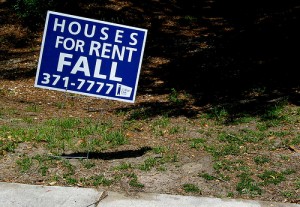 It’s a tricky situation for both tenants and landlords: renting private housing and paying with housing benefit (in the United States this is known as Section 8 housing benefits). For tenants, it can be a struggle to find private accommodation that accepts housing benefit claimants. For landlords, they could find themselves out of pocket if their tenants are unable to pay the full amount for rent – and with irregular income and recent changes to the housing benefit system, tenants may find themselves with overdue debts more and more often.
It’s a tricky situation for both tenants and landlords: renting private housing and paying with housing benefit (in the United States this is known as Section 8 housing benefits). For tenants, it can be a struggle to find private accommodation that accepts housing benefit claimants. For landlords, they could find themselves out of pocket if their tenants are unable to pay the full amount for rent – and with irregular income and recent changes to the housing benefit system, tenants may find themselves with overdue debts more and more often.
However, accepting a tenant on housing benefit is still a viable option if you’re looking to rent a property. The website DSS Move provides a way for landlords to access this market through an online portal.
The housing benefit cap
Recent reforms by the government have seen big changes to the benefits system in the UK. Since April 2013, tenants will have their income from all benefits capped – £350 a week for single adults and £500 a week for couples and single parents with children. As part of this cap, their housing benefit may be cut and consequently tenants may have difficulties making up the shortfall on their rent. This has been a particular problem in London and the south, where rents tend to be higher.
Because of this, if you’re a landlord considering taking on housing benefit tenants, you may have to adjust the rent downwards to take into account the recent cuts. It may result in lower margins, but it’s essential if you don’t want properties to stand empty for longer than necessary.
Checking a tenant
It’s vital to know your tenant so that you won’t run into any surprises further on in the contract. You can ask to see evidence of their benefits, including their current income and the amount of their LHA allowance. It’s important to ensure you work out an arrangement beforehand to check how much of the rent will be paid for by housing benefit and what amount, if any, will need to be “topped up” by the tenant.
Who receives housing benefit?
Housing benefit – also known as DSS, after the former Department of Social Security (now the Department of Work and Pensions) – is a payment intended to help tenants meet the cost of rented accommodation. Broadly speaking, housing benefit is paid to eligible recipients with a low income. This doesn’t necessarily mean housing benefit recipients are unemployed – anyone who’s employed but on a low income may be eligible.
The amount of housing benefit varies depending on whether the recipient is renting privately or through a council, income and circumstances. It can range from up to £250 a month for single bedroom properties to £400 for a 4 bedroom property.

We hadn’t considered renting to a section 8 tenant before but I don’t think we’d have a problem with it. We’d just have to do our due diligence, as you noted, and check to see if our set up (renting a room in our house) would even qualify. Interesting post!